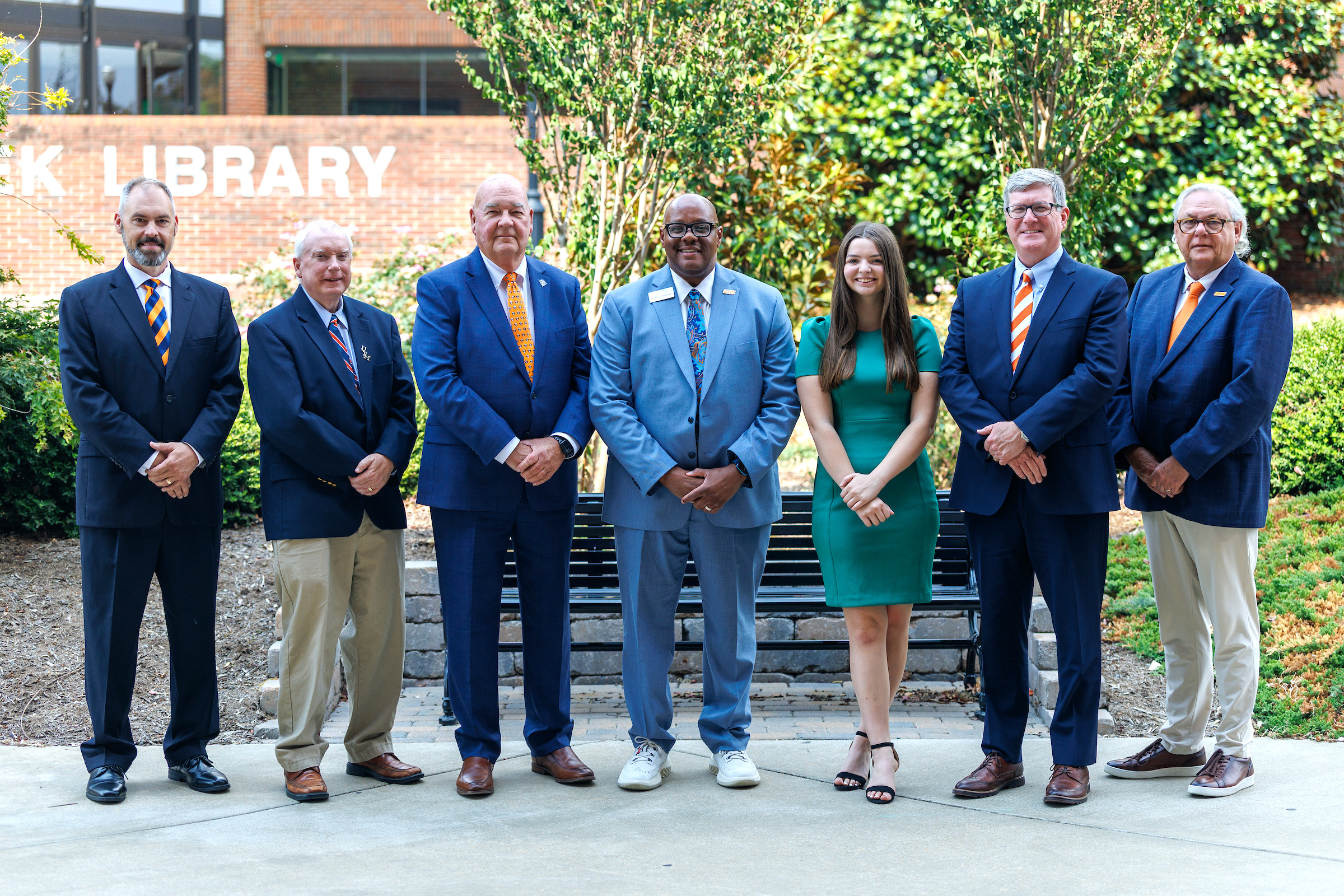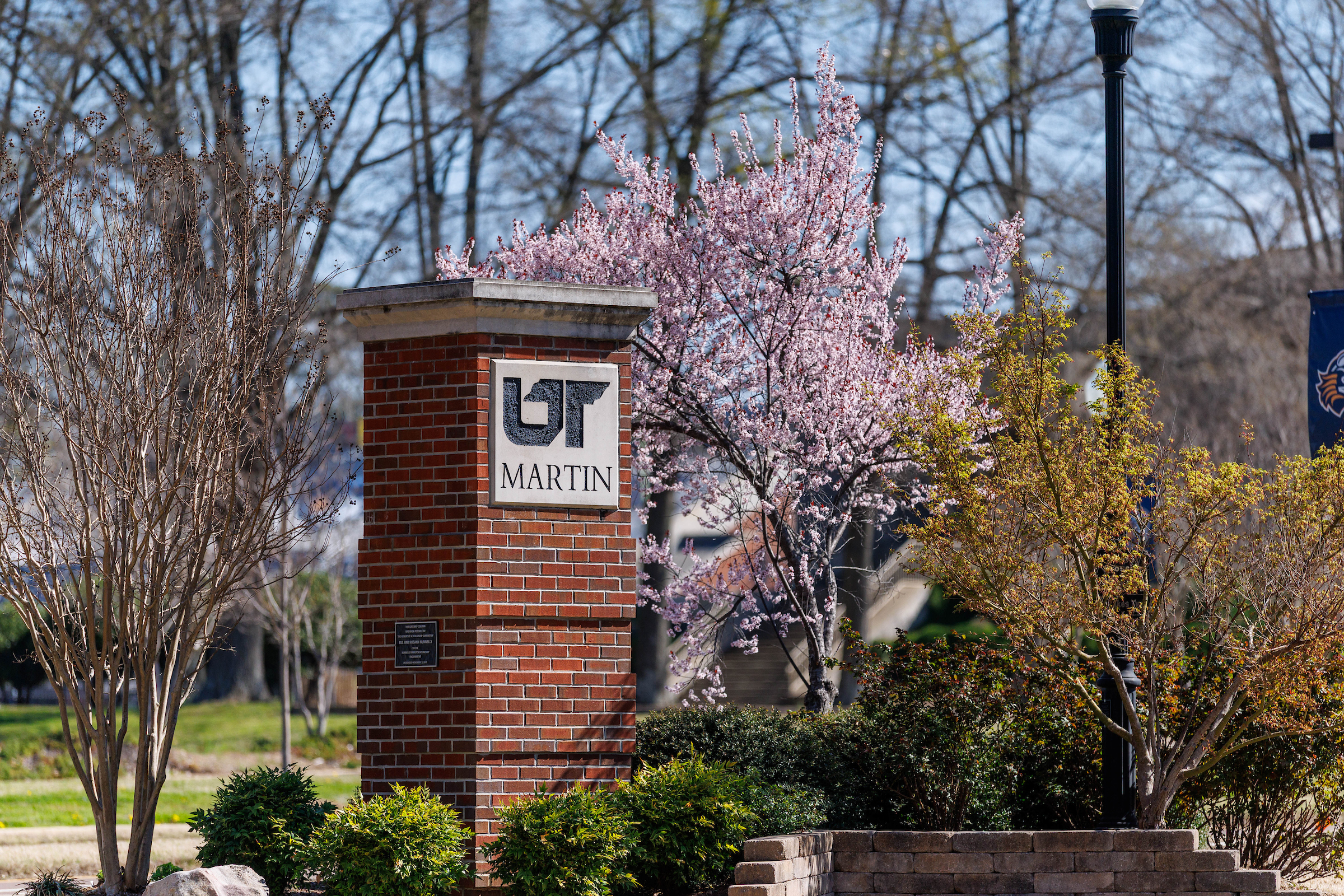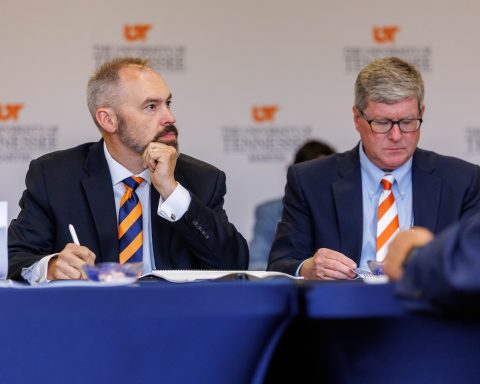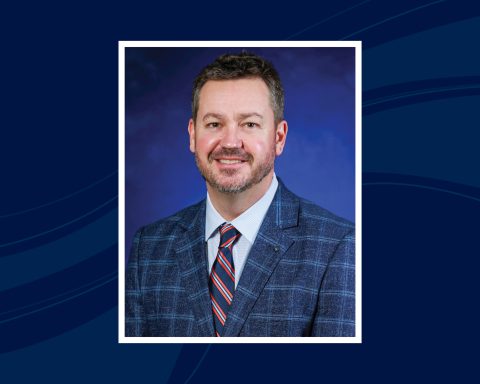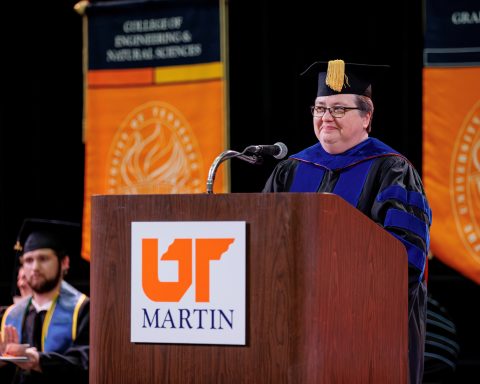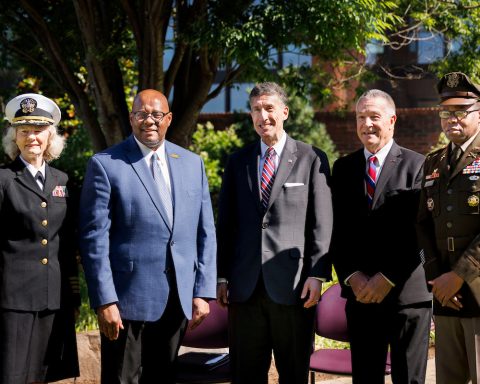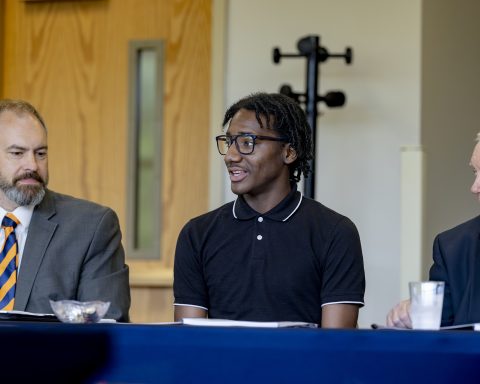The University of Tennessee at Martin’s successful 2025 fall enrollment – the second-highest enrollment in university history – was among the agenda items presented during the UT Martin Advisory Board’s fall meeting Sept. 19 in the Boling University Center.
Dr. Destin Tucker, assistant vice chancellor for enrollment management, reported 8,101 total students enrolled, a fall-to-fall increase of 7.9%. UT Martin students are from 87 of the 95 Tennessee counties along with students from 40 states and 29 countries, including Tennessee and the U.S., respectively. UT Martin total enrollment includes students who are auditing courses.
“Fall 2025 enrollment is up in every category compared to fall 2024,” Tucker said. “We exceeded our enrollment model’s projections in both total enrollment and in undergraduate students.”
Only graduate enrollment was slightly below the 2025 benchmark at 0.1%.
The university’s full-time equivalency, or FTE, is up 8.1% compared to fall 2024. FTE is determined by dividing undergraduate student credit hours by 15 and graduate hours by 12. Public colleges and universities are funded by the Tennessee General Assembly based on FTE.
“This (higher FTE) really suggests that we don’t just have more students, but more students are enrolling in fuller courseloads, which is a positive indicator for that engagement and retention that we’re tracking,” Tucker said.
First-year students totaled 1,329 for an 8.9% increase over fall 2024 and exceeded the enrollment-goal benchmark by 3.7%. Out-of-state students represent 10% of the total, with Illinois and Kentucky providing the most UT Martin students. Top Tennessee counties were Shelby County, with 12% of first-year enrollment, followed by Weakley and Gibson counties with 7% each, Obion County at 6%, Carroll County at 5%, and Dyer and Madison at 4% each.
Students enrolled in UT Martin dual enrollment courses were up 16% compared to fall 2024 at 2,111 high school students. Dual enrollment courses allow high school students to earn both high school and college credits, which provides a head start for earning a college degree.
Tucker also noted ongoing strong student retention as a contributor to enrollment success, which indicates students who remain enrolled at the university year to year. Returning undergraduate enrollment is 3,413 students for a 6% increase compared to fall 2024.
First-year student retention is the second-highest retention rate in eight years at 75.2%. Total retention for full-time undergraduate students is 85.2% and is the highest overall undergraduate retention number since 2018.
Tucker closed by reminding board members that the fall 2026 goal is 8,348 students as the university moves toward 10,000 students by 2030.
“I’m confident that we’ll get there the same way we’ve come along so far,” she said. “We’re going to focus on our recruitment strategies, removing barriers, supporting student success, and working together across every corner of our institution.”
Jake Bynum, UT Martin chief of staff, provided the other major board report with an update about the university’s strategic plan and a demonstration of the plan’s dashboard.
Goals for the plan include for it to be a transparent, living document that will be monitored for progress through data-driven assessment, Bynum said. The plan, approved by the UT Board of Trustees in February 2025, includes five goals, 24 strategies and more than 30 faculty, staff and community leaders who are responsible for following up on strategies and achieving the plan’s goals.
“I am incredibly proud of the strategic plan,” Freeman said. “It is bold, it is innovative, it is visionary and forward-thinking. I think it’s going to be impactful – a force for the university for the next five years. For me, you will not accomplish what you do not measure.”
Freeman closed the meeting with final comments about the university’s enrollment growth and credited many at the university for two consecutive years of 8% growth.
“I am incredibly proud of the enrollment management team,” he said. “I’m incredibly proud of all of our faculty and staff because it is a team effort for us to get there – every single person pushing in the same direction for us to get to that sort of goal.”
In other updates, Freeman previewed the university’s 125th celebration of the university’s founding in 1900 that will begin with an opening ceremony Oct. 10 during 2025 Homecoming Week. Activities will continue until a final birthday celebration next fall completes the celebration.
Freeman also reviewed major capital projects, including the current planning stages for a new College of Business Administration Building, with a projected opening in 2029; construction of the new Tennessee Entrepreneurial Science and Technology (TEST) Hub that is expected to begin in spring 2026; and a new 400-bed residence hall to replace Browning Hall that will be closed following 2026 spring 2026 semester. The new residence hall is expected to open in fall 2028.
Also, work on the second phase of Hall-Moody Administration Building improvements is expected to be completed in spring 2026.
Earlier in the meeting, four President’s Award recipients from UT Martin were honored by the board. President’s Awards recognize outstanding faculty and staff from across the University of Tennessee System and were presented by UT President Randy Boyd during the UT Board of Trustees meeting July 1 at UT Chattanooga. UT Martin faculty and staff received four of the 12 awards.
Those recognized during the advisory board meeting were:
• Kameron Echols, director, student leadership and campus culture, Embrace Diversity Award.
• Gina McClure, assistant vice chancellor, student and residential life, Optimistic and Visionary Award.
• Judy Sandefer, executive assistant, Office of the Chancellor, Excel in All We Do Award.
• Tara Tansil-Gentry, lecturer, health and human performance, Embrace Diversity Award.
Also, Ben Jones, UT Martin assistant vice chancellor for development, was recognized for
receiving one of six 2025 University of Tennessee Foundation, Inc., President’s Awards.
Advisory boards were created for each University of Tennessee campus under the UT FOCUS Act passed during Gov. Bill Haslam’s administration. Board members are appointed by the governor, confirmed by the Tennessee General Assembly, and advise the chancellors, UT president and UT Board of Trustees on matters related to the university campuses.
Members of the UT Martin Advisory Board are Art Sparks, board chair, Union City; Hal Bynum, Dresden; Darby Self, student representative, Fayette County; Dr. Dan McDonough, faculty representative, Martin; Stefan Maupin, Dyersburg; and Dan Strasser, alumni representative, Chapel Hill.
The full board meeting is archived for viewing at www.utm.edu/abmeeting. The UTM Advisory Board’s next meeting will be January 2026 in Martin.
PHOTO: The UT Martin Advisory Board met for its fall meeting Friday, Sept. 19, in the Ed and Carolyn Boling University Center. Pictured (l-r) with Chancellor Yancy Freeman are UT Martin Advisory Board members Dan Strasser, Dr. Dan McDonough, Art Sparks, Freeman, Darby Self, Stefan Maupin and Hal Bynum.

